Holding colorful markers in pink and purple, two young girls sat closely by each other outside the church of Kufer Bir'im and decorated a wooden board that read 'Al-Awda' – the return. In a summer camp unlike any other, which has been taking place for over two decades in this destroyed Upper Galilee village, boys and girls of the third generation wander through the rubble of their ancestors' homes and for the duration of a week live a reality that even their parents know only by name.
This was the second year I joined Zochrot's "Bus of Return" to Bir'im. My hope was, and still is, that by demonstrating my support I would encourage reconciliation between the people of the country, and perhaps even bring justice just a few steps closer. In the tale of this village, almost everyone involved admitted there was no justice in the security establishment's decision to ignore the ruling of the High Court, which permitted the people of Bir'im to return. Instead, the village was closed off, its houses demolished, its residents forbidden to return. Half of the original inhabitants and their descendents live in Lebanon and around the Palestinian Diaspora. The other half are Israeli citizens, most of them residing in the Galilee.
The only right reserved today to the people of Bir'im is the right of free entry to Bir'am National Park, located on one segment of some 12,000 dunams owned by the people of Bir'im. That moment at the entrance, when the guard allowed bus number 194 to pass without paying entry fees because we were visiting the week-long camp of the Bir'im community, was a moment of sweet victory. Many parks in Israel are situated on hundreds of Palestinian villages destroyed in 1948. In most of them there are no ruins which bare witness to the past. Only those keen on seeing this not-so-distant history will discover it buried under the rows of trees and picnic tables. The refugees of these villages have no place in today's parks. Yet in Bir'im, the children's voices greeted us already at the parking lot.
Nahida, second generation to the displaced people of Bir'im living today in Israel, took us on a tour and proudly showed us the demolished houses. As part of a new initiative taken by Bir'im's teenagers, family names written on stones at the entrance to the houses mark ownership and highlight the past.
Nahida took our group to her family's house. A huge fig tree now grows in the center of the family living room, surrounded by remaining walls. The children have added to the tree colorful flowers made of paper.
I wonder whether in their young eyes they are decorating their family past or coloring in the picture of their tomorrow, and ours.
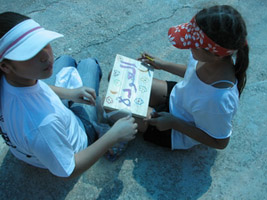
Birem Youth Camp 2005 (9)
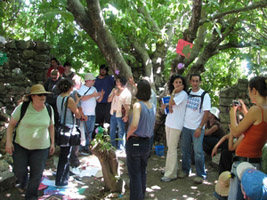
Birem Youth Camp 2005 (7)
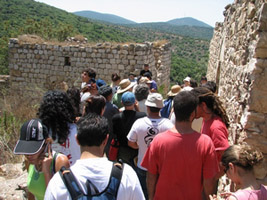
Birem Youth Camp 2005 (6)
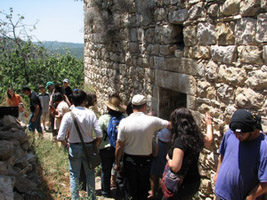
Birem Youth Camp 2005 (5)
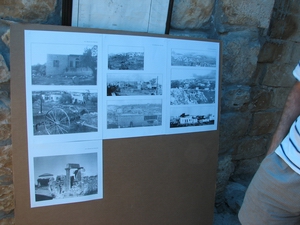
Birem Youth Camp 2005 (10)
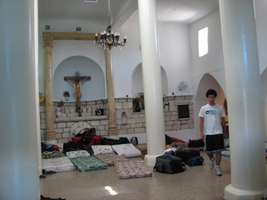
Birem Youth Camp 2005
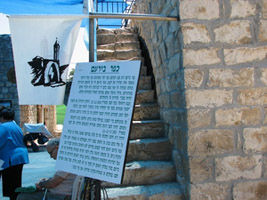
Birem Youth Camp 2005 (1)
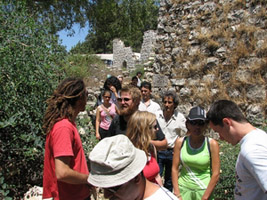
Birem Youth Camp 2005 (3)
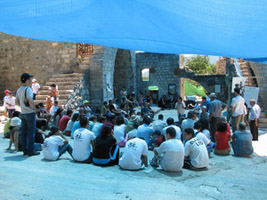
Birem Youth Camp 2005 (2)
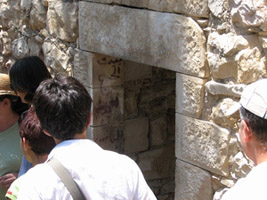
Birem Youth Camp 2005 (4)
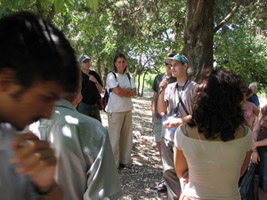
Birem Youth Camp 2005 (8)


